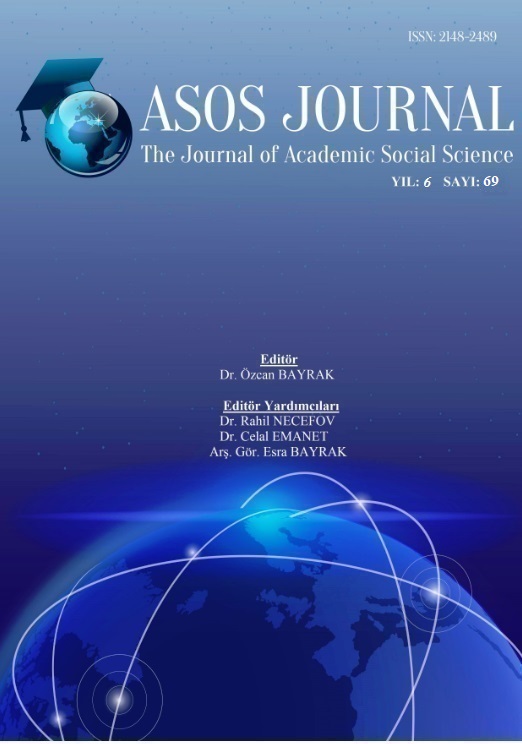Author :
Abstract
Türkçe yüzyılları aşan tarihî macerası boyunca uzak coğrafyalarda, özellikle söz varlığı açısından çeşitli değişimler göstermiştir. Zaman içinde Türkçe birçok sözcük unutulup yerini yeni sözcüklere bırakmış veya değişim göstermiştir. Türkçenin eski dönemlerinde kullanılmış ancak bugün kullanımdan düşerek unutulmuş sözcükleri tespit etmenin yegâne yolu yazılı tarihî Türkçe metinlerdir. Dil biliminde eskicil terimi, eski dönemlere ait günümüzde kullanılmayan yapı, birim veya ögeleri ifade etmektedir. Bu terim Fransızca arkaik kelimesiyle de karşılanmaktadır. Bu makalede, Beylikler Dönemine ait Tebâreke (Sûretü’l-Mülk) Tefsîri’nin Burdur nüshasındaki arkaik kelimeler tespit edilmiştir. Eser, İnançoğulları Beyliği’nin son beyi İshak Bey bin Murâd Arslan’ın (hükümranlık yılları yaklaşık 1362-1368; ölümü 1391’den sonra) isteğiyle Türkçeye çevrilmiştir. Ancak şimdiye kadar eserin müellif hattına ulaşılamamış olduğundan yazarının kim olduğunu ve telif tarihini bilmiyoruz. İncelenen nüsha, 1422 (Hicri 826) tarihinde Edhem bin Hıfzu’llah Bin Hasan et-Tavîl el Bağdadî tarafından istinsah edilmiştir.
Keywords
Abstract
Turkish has undergone various changes especially in terms of vocabulary in distant geographies throughout its history that have spanned long centuries. In the course of time, many words in Turkish were forgotten and replaced by other words or underwent changes. The only way to determine words that were used in earlier periods of Turkish but have fallen into disuse and been forgotten today is to examine historical texts written in Turkish. The word obsolete in linguistics refers to patterns, units or elements belonging to earlier times which are not used today. This notion is also expressed using the French word archaic. In this article, archaic words were identified of an interpretation of Surah Tebareke (Surah Mülk) in the Burdur copy belonging to the Period of Principalities. The book was translated into Turkish upon request by İshak Bey bin Murâd Arslan, who was the last prince of the Principality of İnançoğulları (who reigned between the years 1362 and 1368 and died after 1391). However, we do not yet known who the author of the work is and when it was written because so far we have failed to obtain a line ascertaining its author. The copy under investigation was copied by Edhem bin Hıfzu’llah Bin Hasan et-Tavîl el Baghdadî in 1422 (Hegira 826).





